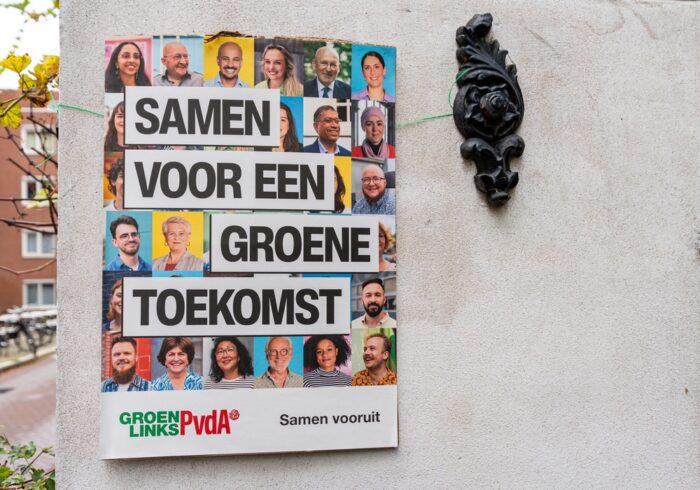Find all related Progressive Post
Progressive Post

The 2024 general election was a disaster for Britain’s Conservatives. Whether it turns out to be a complete catastrophe, however, depends on how they react to their defeat. Moving even further toward the populist radical right than they already have would probably be a big mistake. But it is one they look likely to make.
Success, they say, has many fathers but failure is an orphan. But when it comes to the Conservative Party’s epic defeat on 4 July, there are almost too many people one might choose to blame. All we can say for certain is that the punishment beating it suffered at the hands of British voters that day saw the party crash to its worst defeat since 1832. It was left with just 121 MPs in the 650-seat House of Commons and the support of fewer than a quarter of the six in ten Brits who could be bothered to turn out to deliver what every single survey had suggested for weeks would be a Labour landslide. Hardly surprising, then, that the diagnoses of the reasons for that defeat and the prescriptions for recovery began even before the polls closed at 10 pm on that Thursday evening and have continued with a vengeance ever since.
Perhaps predictably, given it chimes so perfectly with the long-held position of ‘the party in the media’ (the Tory-supporting reporters, columnists, editors, owners and broadcasters who are an integral part of the conservative milieu and every bit as influential as its politicians and grassroots members), the most popular ‘take’ holds that the Tories lost because ‘they were not conservative enough’. If only, right-wing leadership hopefuls like Suella Braverman and Robert Jenrick argue, the government of which they had once been a part before being sacked or resigning had offered even more tax cuts, rowed back even further on progress toward net zero, hit back even harder against all things ‘woke’ and taken even more radical action not only to ‘stop the boats’ full of asylum-seekers coming across the English Channel but also to cut back on legal (yet supposedly bogus and/or wholly unnecessary) legal migration, then the election was there for the taking. And, just as importantly, the argument continues, doing all this would – especially if the election had been delayed until the autumn when its leader, Nigel Farage, would supposedly have been too busy hanging out stateside with Donald Trump – have discouraged so many erstwhile Tory supporters from making up a good proportion of the four million people who voted for Reform UK, Britain’s populist radical right party.
To Braverman and Jenrick (and all those Tories who, likewise, like to think of themselves as part of the international ‘Nat Con’ – National Conservatism – movement), this easy explanation for their party’s dire defeat also points to the path to rapid recovery. In short: just say it like you really mean it this time and, as Labour ‘inevitably’ saddles the country with even higher taxes and punishingly expensive green measures, crushes it with cancel culture and rolls out the red carpet to any old foreigner who wants to come to the UK, victory will surely follow.
Maybe. But maybe not. Such a strategy is, at best, not without its problems. Perhaps the most pressing question – and one that is bound to rear its head during the coming leadership contest – is where do Farage and his four fellow Reform MPs (all the party was afforded for its 14 per cent of the vote by the plurality electoral system) fit into it?
Will they be encouraged to join or merge with the Conservatives to ‘unite the right’ – a move that its advocates are already trying to sell on the (arithmetically accurate but ultimately spurious) grounds that the vote for many a Reform candidate was bigger than the gap between a losing Tory candidate and a winning Labour or Lib Dem MP? In this case, there are a number of more centrist conservative parliamentarians who might jump ship, either to become independents or even to join Labour or the Lib Dems.
Or will Farage and his colleagues instead be kept formally at arm’s length? In which case, what is to stop them from simply outbidding any radical right-wing populist offer that the newly hardline Conservative Party makes to the electorate, thereby tempting the Tories to head even further from the centre of the political spectrum where the bulk of voters – especially those who are not yet retired – generally hang out.
That electorate, all Tories would do well to remember (if, that is, they aspire to win a majority under first past the post), includes not only Reform and ‘Reform-curious’ voters, but also the 53 per cent of voters who on 4 July supported Labour, the Lib Dems and the Greens and whose economic priorities and cultural values, post-election polling suggests, differ markedly from their own.
There are, of course, a fair few Tories who have not forgotten that that is the case – most obviously the self-styled One Nation leadership hopeful, Tom Tugendhat. Indeed, he and his ilk may even constitute the majority of the parliamentary party. They are likely to lose out, however, to the right-wing, more vocal minority to which the party in the media pays more attention and which is sufficiently large to ensure that one of its own (probably Kemi Badenoch rather than Braverman) will make it into the final two and so find themselves chosen as leader by the party’s grassroots members who have the final say.
If that comes to pass, then, unless the Labour government messes up big time (by no means impossible!) and an already volatile electorate swings back the other way as a result, the conservatives – especially if they continue to obsess over Nigel Farage and the voters they lost to him this time round – risk stranding themselves far too far to the right of the median voter and hence out of office for some time to come.
Photo Credits: Shutterstock.com/SeanAidanCalderbenk
| Cookie | Duration | Description |
|---|---|---|
| cookielawinfo-checkbox-advertisement | 1 year | Set by the GDPR Cookie Consent plugin, this cookie is used to record the user consent for the cookies in the "Advertisement" category . |
| cookielawinfo-checkbox-analytics | 11 months | This cookie is set by GDPR Cookie Consent plugin. The cookie is used to store the user consent for the cookies in the category "Analytics". |
| cookielawinfo-checkbox-functional | 11 months | The cookie is set by GDPR cookie consent to record the user consent for the cookies in the category "Functional". |
| cookielawinfo-checkbox-necessary | 11 months | This cookie is set by GDPR Cookie Consent plugin. The cookies is used to store the user consent for the cookies in the category "Necessary". |
| cookielawinfo-checkbox-others | 11 months | This cookie is set by GDPR Cookie Consent plugin. The cookie is used to store the user consent for the cookies in the category "Other. |
| cookielawinfo-checkbox-performance | 11 months | This cookie is set by GDPR Cookie Consent plugin. The cookie is used to store the user consent for the cookies in the category "Performance". |
| csrftoken | past | This cookie is associated with Django web development platform for python. Used to help protect the website against Cross-Site Request Forgery attacks |
| JSESSIONID | session | The JSESSIONID cookie is used by New Relic to store a session identifier so that New Relic can monitor session counts for an application. |
| viewed_cookie_policy | 11 months | The cookie is set by the GDPR Cookie Consent plugin and is used to store whether or not user has consented to the use of cookies. It does not store any personal data. |
| Cookie | Duration | Description |
|---|---|---|
| __cf_bm | 30 minutes | This cookie, set by Cloudflare, is used to support Cloudflare Bot Management. |
| S | 1 hour | Used by Yahoo to provide ads, content or analytics. |
| sp_landing | 1 day | The sp_landing is set by Spotify to implement audio content from Spotify on the website and also registers information on user interaction related to the audio content. |
| sp_t | 1 year | The sp_t cookie is set by Spotify to implement audio content from Spotify on the website and also registers information on user interaction related to the audio content. |
| Cookie | Duration | Description |
|---|---|---|
| CONSENT | 2 years | YouTube sets this cookie via embedded youtube-videos and registers anonymous statistical data. |
| iutk | session | This cookie is used by Issuu analytic system to gather information regarding visitor activity on Issuu products. |
| s_vi | 2 years | An Adobe Analytics cookie that uses a unique visitor ID time/date stamp to identify a unique vistor to the website. |
| Cookie | Duration | Description |
|---|---|---|
| NID | 6 months | NID cookie, set by Google, is used for advertising purposes; to limit the number of times the user sees an ad, to mute unwanted ads, and to measure the effectiveness of ads. |
| VISITOR_INFO1_LIVE | 5 months 27 days | A cookie set by YouTube to measure bandwidth that determines whether the user gets the new or old player interface. |
| YSC | session | YSC cookie is set by Youtube and is used to track the views of embedded videos on Youtube pages. |
| yt-remote-connected-devices | never | YouTube sets this cookie to store the video preferences of the user using embedded YouTube video. |
| yt-remote-device-id | never | YouTube sets this cookie to store the video preferences of the user using embedded YouTube video. |
| yt.innertube::nextId | never | This cookie, set by YouTube, registers a unique ID to store data on what videos from YouTube the user has seen. |
| yt.innertube::requests | never | This cookie, set by YouTube, registers a unique ID to store data on what videos from YouTube the user has seen. |
| Cookie | Duration | Description |
|---|---|---|
| COMPASS | 1 hour | No description |
| ed3e2e5e5460c5b72cba896c22a5ff98 | session | No description available. |
| loglevel | never | No description available. |


